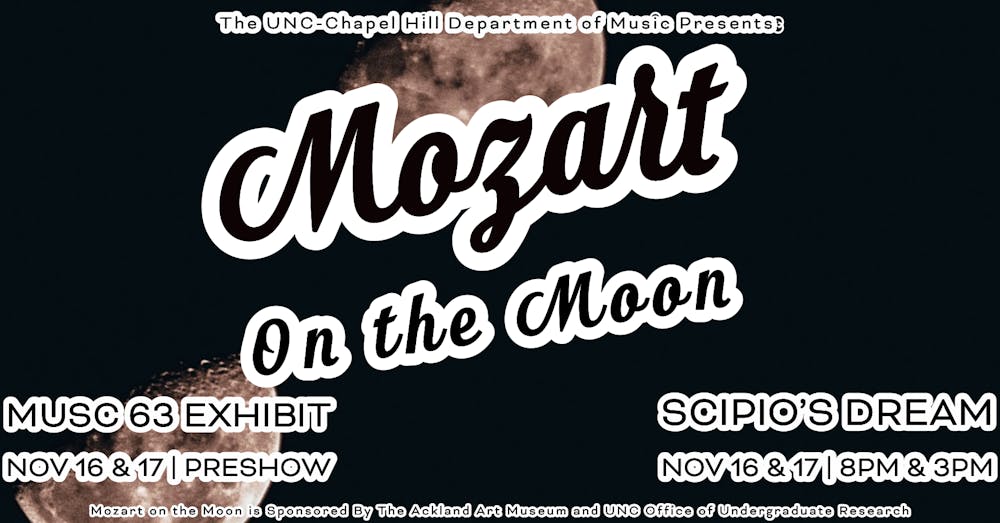If you’re searching for out-of-this-world plans this weekend, look no further than UNC Opera’s production of “Il Sogno di Scipione,” or “Scipio’s Dream,” on Nov. 16 in Moeser Auditorium in Hill Hall. The event will feature music by Mozart with a retro-futuristic twist.
“Scipio’s Dream” is a dramatic serenade in one act originally composed by Mozart, with a libretto based on the book “Somnium Scipionis” by Cicero.
UNC Opera director Marc Callahan said UNC’s unique version of “Scipio’s Dream” seeks to be more contemporary and tangible to audiences by telling a story about a young, aspiring astronaut who finds herself on a celestial journey to success.
“UNC Opera has used this opportunity to explore storytelling through art and design and we have used our research to inform and inspire our creation of sets, costumes and props,” Callahan said in an email. “In this particular production, we are celebrating both surrealism and retro-futurist aspects of art and design.”
Callahan said he found inspiration for the color and futuristic elements from 1960s science fiction and cartoons like “The Jetsons,” as well as contemporary music videos from designers such as Mathew Cullen and Yoann Lemoine.
The production is a little under an hour and features a 1960s space-age aesthetic. Cat Zachary, the communications coordinator for UNC’s music department, said this is likely one of the most unique productions UNC Opera has ever done, because it’s not the classical version that someone would see anywhere else.
“I think this is a great gateway into opera. It’s a great introduction to people who have never seen an opera before, because it’s a little under an hour and it’s so vibrant, not only visually, but also for the ears,” Zachary said.
Zachary said this production is set in space to celebrate the 50th anniversary of the moon landing and features everything from astronaut suits and sequins to giant cupcakes and the sharks from Katy Perry’s 2015 Super Bowl performance. The one-of-a-kind nature of this performance is something Zachary hopes will invite people to look at opera as something fun, rather than stuffy.
“Even when we’re taking something that was written a couple centuries ago, it can be really located in this time and space, with context that matters to us now,” Zachary said.




